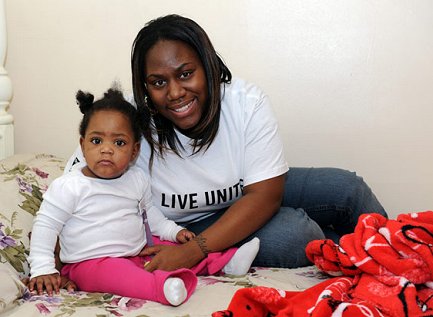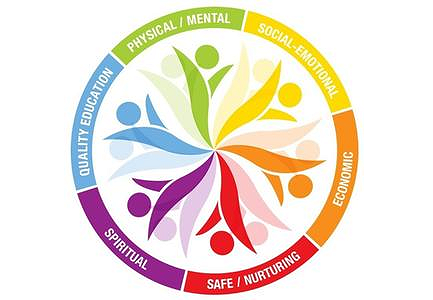Our Philosophy
Whole Child is not another program, but a philosophy that uses strategic planning, web-based technology, performance measurement and broad-based community engagement to build communities where everyone works together to make sure children thrive.
Our Goals:
- Community Ownership and Participation in Early Childhood Success
- Children are Healthy at Age 1
- Children are Making Appropriate Progress
- Children Enter Kindergarten Ready to Succeed
There is growing recognition that investment in early childhood, beginning with prenatal care and focusing on ages 0-5, is critical to the health and well being of every community. Similarly, there is increased recognition that single strategy programs are not effective—that we need a holistic approach to nurturing infants and young children that engages parents and incorporates all dimensions of the Whole Child. Whole Child communities have discovered that there is broad-based support among business, political, and other community leaders for the Whole Child philosophy and the need to design and fund integrated models for providing services to children and their parents.
The Whole Child philosophy is grounded in the notion that communities must address all six dimensions of children’s well being to raise healthy children:
- Physical and Mental Health
- Quality Early Education and Development
- Social-Emotional Development
- Spiritual Foundation and Strength
- Safe and Nurturing Environment
- Economic Stability
“A Whole Child” is one who:
- attains physical, intellectual and spiritual well-being,
- experiences strong, positive family attachment,
- interacts constructively in a social context,
- has a sense of hope, and
- lives in an environment that encourages him/her to succeed.
“A Whole Child Community” believes:
- All children should have the opportunity to grow to be healthy, contributing members of society
- Parents have primary responsibility for raising their children
- The community is a partner with parents in this endeavor
- The community must pay attention to all dimensions of a child’s and its parents’ well-being


